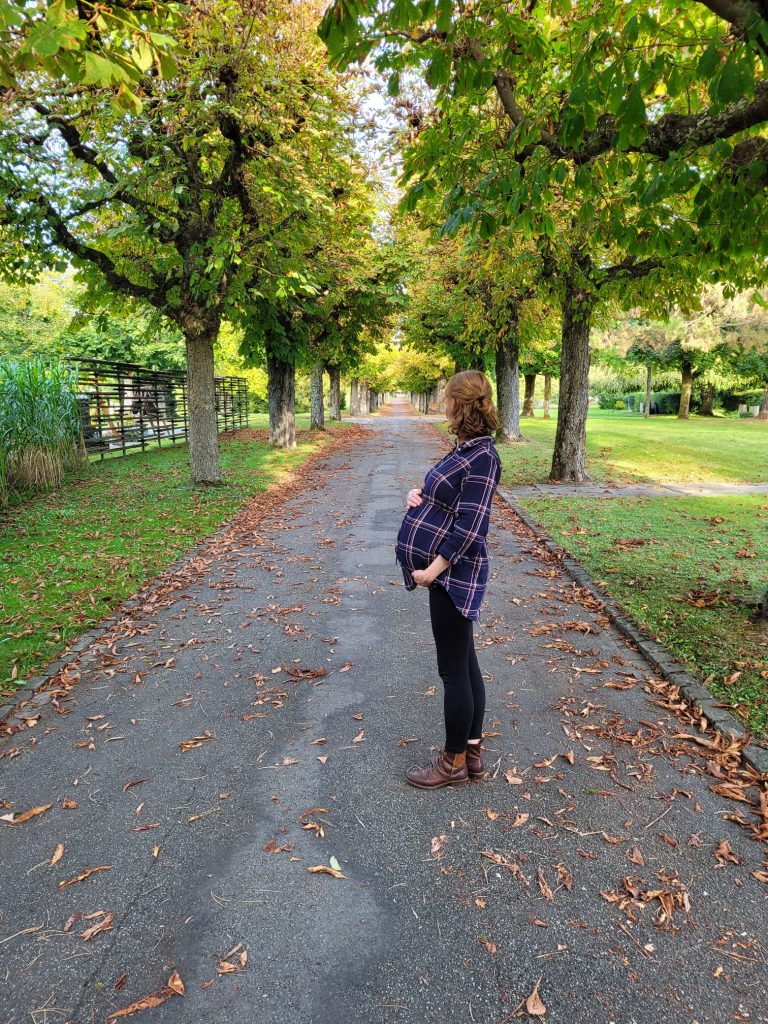Sway, sway, sway.
jiggle, jiggle, jiggle.
Rock, rock, rock.
Nothing was working. It was the first evening home with my newborn and he was crying his tiny heart out. In the deepest darkest depths of my brain, a dusty box swung open and the thoughts trapped in there began to eke out. Those thoughts turned into familiar whispers that swirled around my head.
You don’t know what you’re doing.
You are not a good mother.
You are a failure.
Scenes from those traumatic first few months with Kasper began to play before my eyes feeling fresh as the day they happened. Before me I could see the path I’d been down once before which had culminated with a psychiatrist peering through his glasses at me and saying words I’d never forget: “of all my current patients, you have the worst case of postnatal depression. Really, you need to be medicated or hospitalised”. I knew I couldn’t go back to that again. I needed a plan.
It’s been almost six months since that realisation and I wanted to share what I’ve been doing to keep the beast of postnatal depression at bay. And, while, it’s not perfect and won’t apply to everyone, these tips have kept me healthy, supported, and most importantly, sane.
Spilling my own tea.
When I became a mum, I was so terrified that if I opened that box of whispers and showed people what I had been thinking, they would deem me incapable of taking care of Kasper and take him away. I kept my darkest thoughts to myself and refused to let anyone know the full extent of what was happening. I let them fester away until I was in desperate need of help. (Just to be clear, my bad thoughts were never towards Kasper but only towards myself). This time around I have told everyone I’d had postnatal depression: my gynaecologist, my GP, my midwife and even my new mum friends. The more people who know, the less power it has over me. I also hoped that if I started down that path again, those who knew me and the medical professionals in my life would be able to recognise the signs, perhaps before I did, and be able to throw the right tools at me and get me back on track.
Getting out, every day, without fail.
Sounds ridiculously simple. Borderline condescending. But this has saved me over and over again. For a number of reasons one of the hardest things with Kasper was leaving the house. It meant I ended up staying inside, chronically exhausted, unshowered, in a sea of mess, being screamed at for hours on end. Obviously, this combination was like pouring petrol on the dumpster fire that my mental health was. This time, screaming or not, rain or shine, Arlo comes out the house once a day with me, even if it’s just to the shop at the end of the road and I feel SO much better for it. The walls no longer feel like they’re closing in. Sometimes I bump into a neighbour for a chat, go look at the local animals or simply stand in the forest and breathe. I feel part of the world again. Last week I started the day in the FOULEST of moods. I felt completely triggered after a crappy night with Arlo and furious with the universe that it couldn’t give me a baby that sleeps through the night with minimal effort so I decided to go stomp it out on a walk. If I’d stayed at home sulking around the house swearing at the universe, I would have missed the sound of woodpeckers in the forest, the feeling of the morning sun on my face, the smell of fresh wild garlic and panoramic views of the mountains. I came home feeling re-energised and like a weight had been taken off my shoulders. It’s a fact: I never feel worse for getting out the house.
Seeking connection.
Once a day, if I have no plans, I call a friend. A good friend, who gets it and I’m honest about how my day is going and how I’m feeling. Or a friend who doesn’t get it but tries anyway. I talk to my husband, tell him how I’m really feeling. Sometimes we even find we’re on the same page. I spew it all out into the universe and I find the words no longer hold sway over me as soon as they are set free. I spent so much time wallowing in a deep and painful loneliness when Kasper was a baby and I have been determined not to let this happen again. There have been days when no one has answered the phone or been available for a playdate and I feel the difference which makes me even more motivated the next day to reach out and get those connections firing again.
Noticing.
I have to admit, I’d always thought of mindfulness as mumbo jumbo. It’s the sort of thing bendy people do while gulping down liquid kale in the morning. Right? Wrong. My midwife suggested cranio-sacral therapy to help me in the early postpartum days last year. Again, I thought that was probably mumbo jumbo too until the therapist had me to explain to her how my body reacts to certain things e.g. the sound of my baby crying. So I listened to my body and I realised I clenched my jaw every time I breastfed or Arlo cried. In both situations, my previous baggage meant anxiety sprouted like mushrooms every time I had to feed my baby or he cried – so, a lot! She gave a beautiful tool: to notice how my body reacts and try to change things. For example, to check my jaw. Is it clenched? Ok, open it, waggle it, loosen it. To push my feet into the ground or press my back into the sofa to draw my attention away from the moment and back into my body again. Almost immediately I found I was much better at coping with the crying and was more relaxed breastfeeding. As time has gone by and we are coming out of the acute newborn period, I’m also making a conscious effort to stop, reflect and appreciate the beautiful or simple moments aka glimmers. I look down at my beautiful baby sleeping in my arms and try to soak in the moment, I feel Kasper’s weight against my body as we sit and watch television together, I absorb the joy radiating off the boys as they squeal with laughter together. The energy I get from this keeps me going when times are hard and everything feels permanent and impossible.
Sending for reinforcements.
Having a baby and raising one requires a village. We don’t have that. And not in a feel sorry for us way, it is our choice to live where we live and unfortunately where we live does not include family closeby. One of the biggest shocks to the system when I had Kasper was seeing just how hard it was to do it all on our own. My husband and I relied on each other for everything and it was exhausting. No one was coming if shit hit the fan. Before having Arlo, I decided to skip the shit hitting the fan stage and go directly to the help part and hired a cleaner. I haven’t looked back since. Every Friday, I stand in my sparkling clean kitchen with tears of gratitude in my eyes. This one small outsourced task has taken such a huge weight off my shoulders and it means my husband and I can focus on our kids at the weekend instead of stressing about the filth. Our cleaner is so fantastic she has also become a babysitter for Kasper. A carer costs too much here for us but she has been better than anyone we’ve previously hired and he just adores her. In the absence of a village, we cut corners too. We eat sandwiches for dinner, we batch cook and freeze, we wear outfits several times. We do whatever we can to keep the load off. I recognise my privilege here but I highly recommend a cleaner to anyone who is able to have one come, even if it’s just a few times.
Being honest about my needs.
4 years ago, my therapist said to me in every session “your needs are not being met”, which felt like being hit over the head repeatedly with a frying pan. I didn’t need to spend hundreds an hour to have someone tell me that. This time I’ve been working on at least having some basic needs met and making sure my husband’s are too. When I’m tired, I go to bed at 8pm. No apologies. When my husband needs to move his body, I shove him out the door for a run. When I need him to shut up, listen to me, let me cry and then hug me, I tell him. When he needs me to give him some space, he lets me know. When I want to eat junk, he orders pizza for us. Whoever takes the night shift with Arlo has the right to pass him out at 5am and go straight back to bed. Sometimes your needs can’t be met. Need 12 hours of sleep? Well, you can’t have it but there are some things you can have instead. It takes open communication, negoation and the understanding that it’s a lot of give and take but it is possible.
To finish, I just want to say one thing. I talk a lot about the first year of Kasper’s life a lot because it really felt like there was no hope. Like life would always be that bleak and that my husband and I would always be in a state of perpetual exhaustion and chronic crisis mode. Depression lies to you. It convinces you that you will always feel this way and that life will always look this way. But, and this might sound odd, even though it was probably the worst time of my life, I would do it all over again if that meant having Kasper, Arlo and the life my husband and I have now. The good news is, I don’t have to do it again. I know that box in my mind may never close and when my guard is down, those whispers might come back. But now have a new box, full of tools, ready to tackle them and not let them morph into the postpartum depression demon that once ruled my life. I’m armed and I’m ready and I hope by being open and honest about this struggle that you can be too.

